The importance of risk management in banking and insurance companies has proven itself over time. Regulations are now redefined after any financial turbulence or crisis. The historical flow of the Basel 1, 2 and 3 drafts prepared under the leadership of the bank of international settlement (BIS) will show that this proposal is correct. First, banks had a credit risk, mainly from the assets in the banking accounts, and now the need to allocate capital according to these risky assets was on the agenda. However, with the 2008 financial crisis, banks have lost much more than the capital they had allocated.
Given the operating concentration in the financial sector, high indebtedness rates and the impact on the real economy, the importance of the legal obligation is clear. Thus, the obligation of the above-mentioned drafts by regulatory authorities such as the FED or the BRSA on the legal basis provides the financial sector with a specific legal framework for risk identification, calculation and reporting. The biggest motivation here is that the financial sector becomes “too big to fail” in a global sense and in terms of the industry. It is inevitable that more control-oriented regulatory practices will take place, as the turbulence in this sector will have a profound effect on the real sector and ultimately on the economy.
Today, however, the complexity of both the supply chain and the complexity of investors, the large accumulated debt stock, the fact that transactions and customers and investors are not only regional but also global make it necessary for the real economy to fulfill the requirements of risk management.
In the U.S., the SEC, the CMB and the TCC attempt to establish a number of legal frameworks by referring to the real sector risk management in Turkey. However, this approach offers limited scope and discourse considering the diversity of industry and operations in the real economy. In addition, in liberalized and low inflation economies; it is clear that profit margins fell sharply as a result of competition. For this reason, it is compulsory for each company to establish risk management as a fundamental function, even if it is only for their own sustainability. As sustainable company structure points to a sustainable economy, in addition to the individual interests of the companies, practices, awareness level and common discussion areas need to be established for the overall economy.
Besides, regulations, whether it is a financial or a real sector, cannot always respond quickly in line with the urgency of the moment. With regulatory constraints, civil society organizations should take action to fill this gap and raise awareness. This will contribute to raise awareness of risk management in the real sector and also to create a more workable scope of legislation in a way that reflects the ideas of business managers in the practical and real sector.
In the real sector, the legal obligation is limited to the publicly traded companies, resulting in the other companies not easily adopting such practices that may create cost. The important thing is to explain the necessity of these practices with case studies around the world and to create a common awareness. For this to be achieved, it is important to create platforms where discussions can be made about the methods to be followed.
KRYD joined Federation of European Risk Management Associations (FERMA), established in 1974, which has more than 4000 individual members as of October 2009. The aim of this membership is to create a common culture regarding Risk Management and Insurance activities in Europe, develop practices for risk management and set an international benchmark for professionals in this field.
